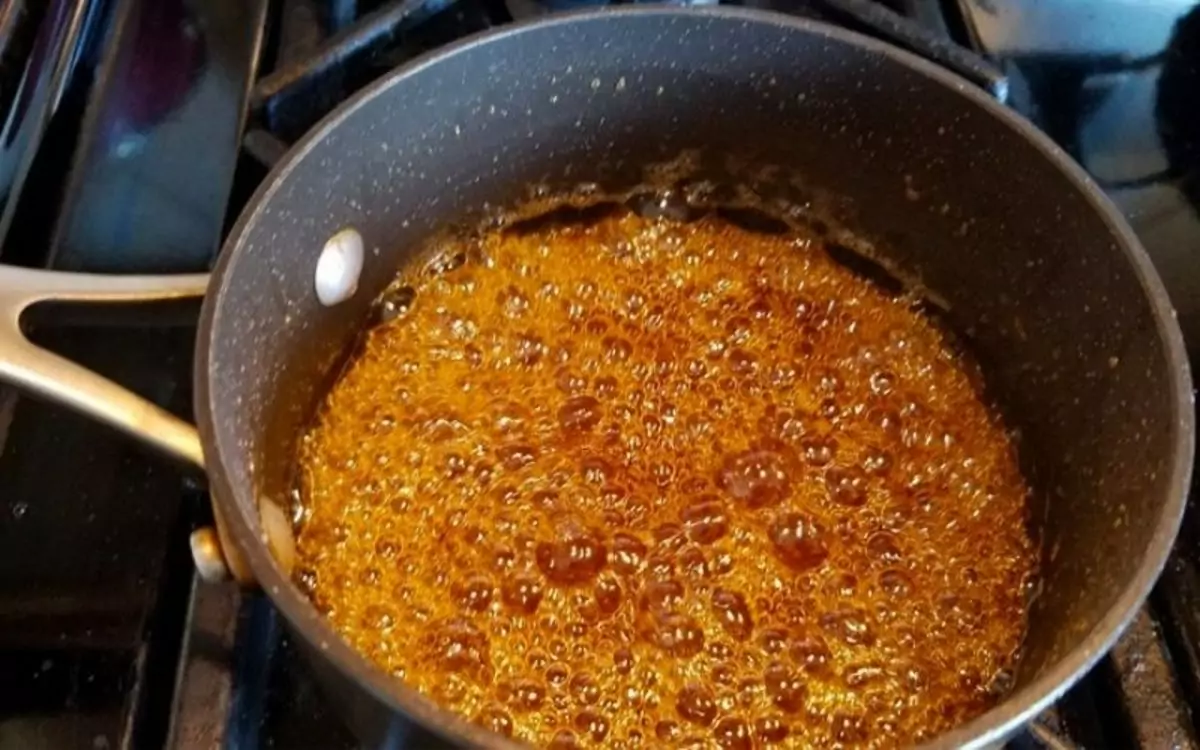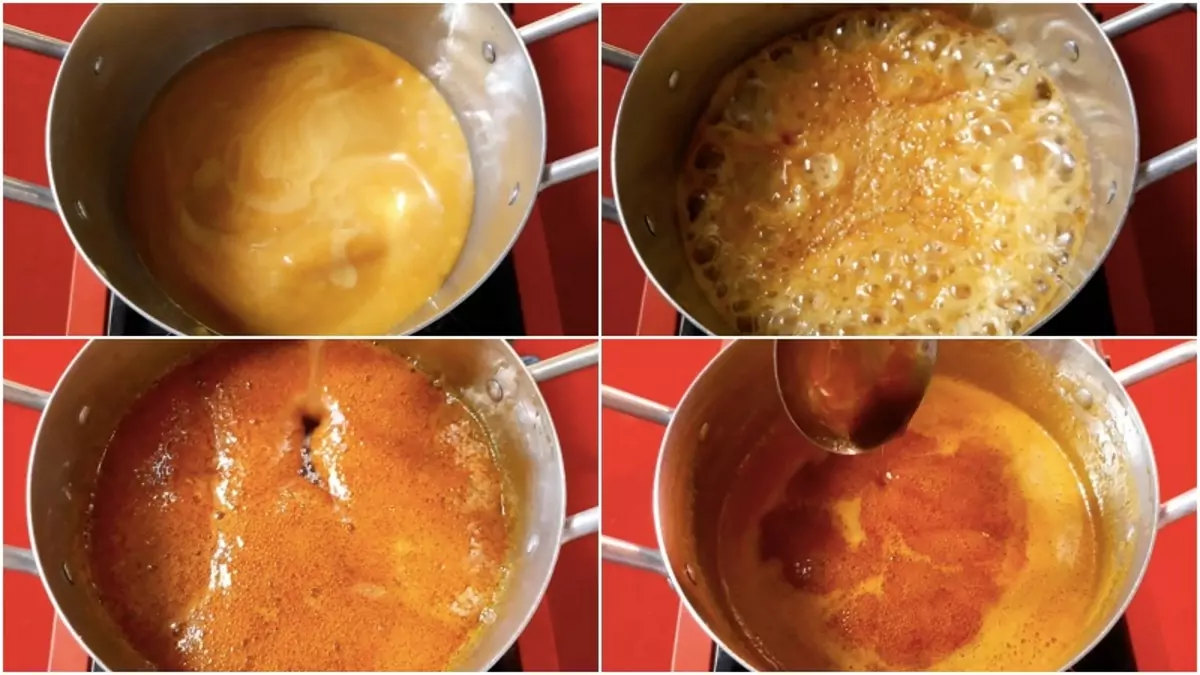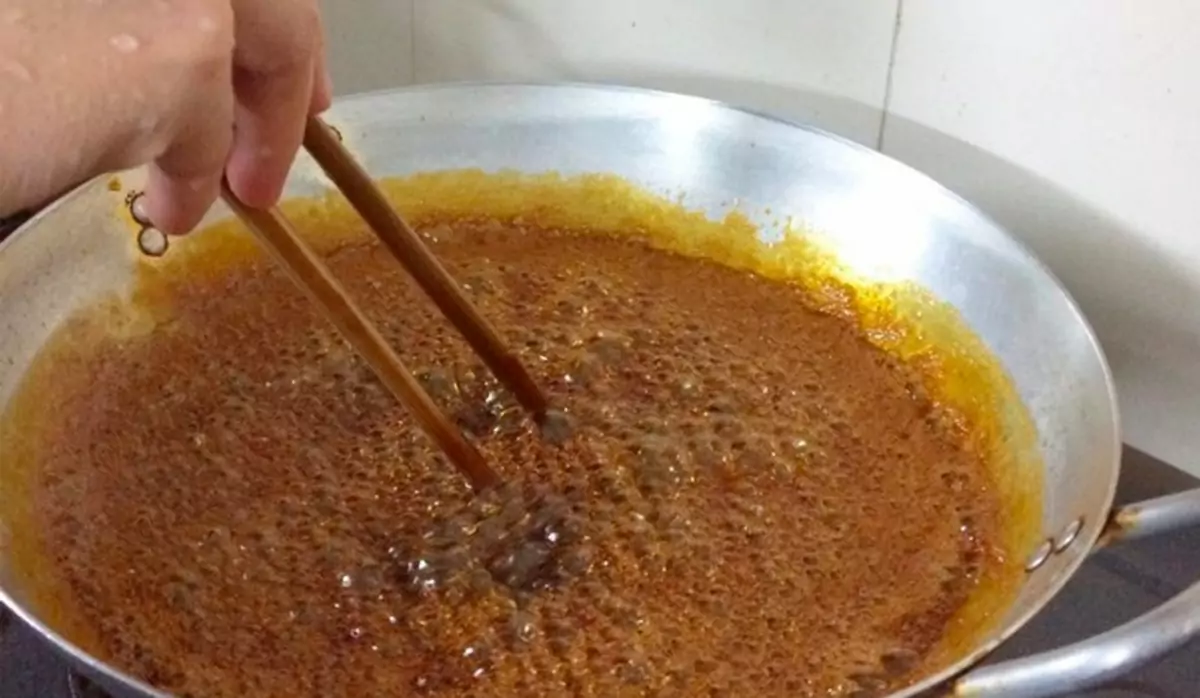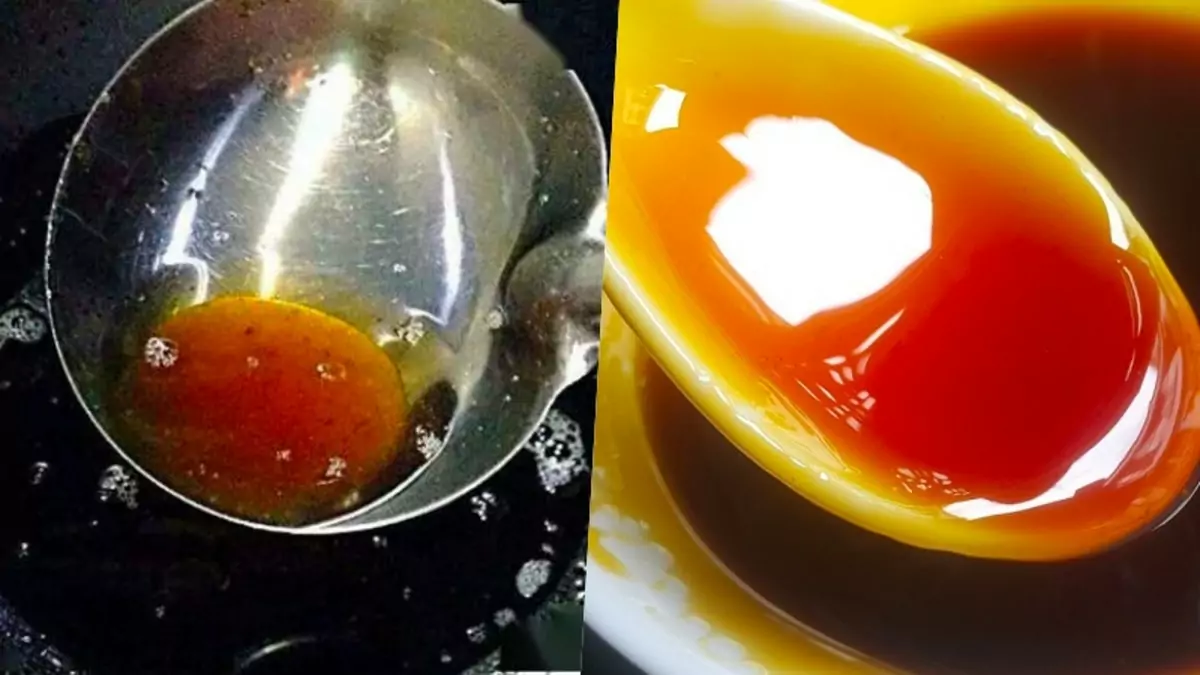Vietnamese Caramel Sauce, also known as “Nước Hàng,” is an essential ingredient when making braised meat or fish dishes. It enhances the aroma and gives the dish an appealing color, increasing its deliciousness. This article will guide you on how to make Vietnamese Caramel Sauce that is both tasty and can be stored for a long time.
Vietnamese Caramel Sauce is simply made by caramelizing sugar. However, if you don’t know how to make it properly, your sauce may turn out bitter, with a burnt smell, making it unappetizing and potentially harmful to your health. If you are looking for tips to create a fragrant and visually appealing Vietnamese Caramel Sauce, the following insights from Food Vietnamese are for you.
1. How to Make Vietnamese Caramel Sauce with White Sugar
There are several main ingredients to make Vietnamese Caramel Sauce; some people use water, while others use cooking oil. According to the experience of many homemakers, using cooking oil to make the sauce results in a more vibrant color and richer flavor. Additionally, when made with cooking oil, the sauce will never solidify and can be stored for a longer period.
However, making Vietnamese Caramel Sauce with cooking oil is somewhat more complex. This is because the temperature of the cooking oil is quite high, and within just 3 minutes, the sugar will turn into caramel. If the person making the sauce is not constantly attentive, it can easily burn.

The ingredients you need to prepare include only granulated sugar and a little cooking oil. Follow these steps:
- Heat a pan on the stove until it is completely dry.
- Pour a little cooking oil into the pan.
- Wait for the oil to heat up, then add the sugar, stirring continuously until the sugar is completely dissolved, then reduce the heat and continue cooking.
- When the sugar mixture thickens, turn off the heat to prevent the sugar from burning too quickly.
2. How to Make Vietnamese Caramel Sauce with Palm Sugar
Ingredients to Prepare
You need to prepare:
- Half a kilogram of palm sugar
- 1.5 cups of water
Instructions for Making Vietnamese Caramel Sauce from Palm Sugar
Cooking the Palm Sugar:
- Place a pot on the stove, add all the palm sugar, and cook on high heat until the sugar comes to a boil, then reduce the heat.
- Cook until the sugar mixture bubbles and turns a beautiful amber color as desired.

Cooking Vietnamese Caramel Sauce from Palm Sugar:
- Turn off the heat and slowly pour clean water into the cooked sugar, then turn the heat back on to high so that the sugar water boils quickly. It’s important to note that you should turn off the heat before adding the water to prevent splattering that could cause burns.
- Cook the sugar water for about 15 minutes until it boils, then reduce the heat to low.
- Continue cooking for another 5 minutes, then turn off the heat.
The Vietnamese Caramel Sauce made from palm sugar will have a naturally beautiful amber color, a smooth texture, and a mild, not overly sweet taste. You can use this sauce for braising meat or fish, giving the dishes a beautiful color, high aesthetic appeal, and much better flavor.
3. Tips for Making Delicious and Flavorful Vietnamese Caramel Sauce
To make a tasty and fragrant caramel sauce, keep the following tips in mind:
- Precisely adjust the timing and temperature.
- Use a thick-bottomed pan to ensure stable temperature and reduce the risk of burning.
- Avoid using pots or pans with dark colors, as they won’t produce the desired color in the final product.
- Be cautious of undercooked caramel sauce, which means it hasn’t been heated enough, resulting in a pale color that hasn’t turned to the desired amber brown. If you use this type for cooking or marinating meat and fish, it won’t give a beautiful color, and the sweetness of the sugar can imbalance the dish’s flavor. You should continue cooking until it reaches the right consistency.
- If the caramel sauce burns: If you accidentally let the sugar burn and it develops a burnt smell, the only solution is to discard it. Some people mix overcooked caramel with undercooked caramel to save it, thinking this will balance it out and make it usable. However, caramel sauce handled this way will not taste good and is not healthy.
- After cooking, let the caramel sauce cool completely before transferring it to a jar for storage. It’s best to use a glass jar with a tin lid to preserve the flavor and color of the caramel sauce. If you use a plastic container, the aroma of the caramel sauce may be altered and become less appealing.

4. When Should You Lower the Heat When Making Caramel Sauce?
Beginners making caramel sauce for the first time often struggle with accurately timing and adjusting the heat, leading to potential failures. After melting and boiling vigorously, the sugar will gradually change from a golden brown to a reddish-brown, then to a dark red, dark black, and finally to pitch black.
When the sugar reaches the dark red-black stage, it can quickly burn, requiring constant attention. The decisive moment that determines whether your caramel sauce is successful or not is when you see the sauce turn dark but, when lifted with a spoon, it has a shimmering red hue that looks quite appealing. At this point, you need to immediately lower the heat, remove the pan from the stove, and continue stirring until the caramel sauce cools down. The perfect result should have a dark red-black color, a sweet caramel aroma, and a pleasant taste with a slight bitterness that is enjoyable.

5. Method for Storing Caramel Sauce
After cooking the caramel sauce, pour it into a bowl or jar and let it cool. Next, use plastic wrap to cover the opening before sealing it with a lid, and store the caramel sauce in the refrigerator. It’s important to seal it tightly to prevent the sauce from absorbing odors from other foods in the fridge. Depending on the ingredients used, the caramel sauce can be stored for several months to up to 3 years.
Making caramel sauce from sugar requires a small trick to enhance its flavor and prevent burning. Hopefully, the above tips have helped you learn how to make rich and perfectly flavored caramel sauce. For more delicious cooking tips, visit Foodvietnamese.com!
